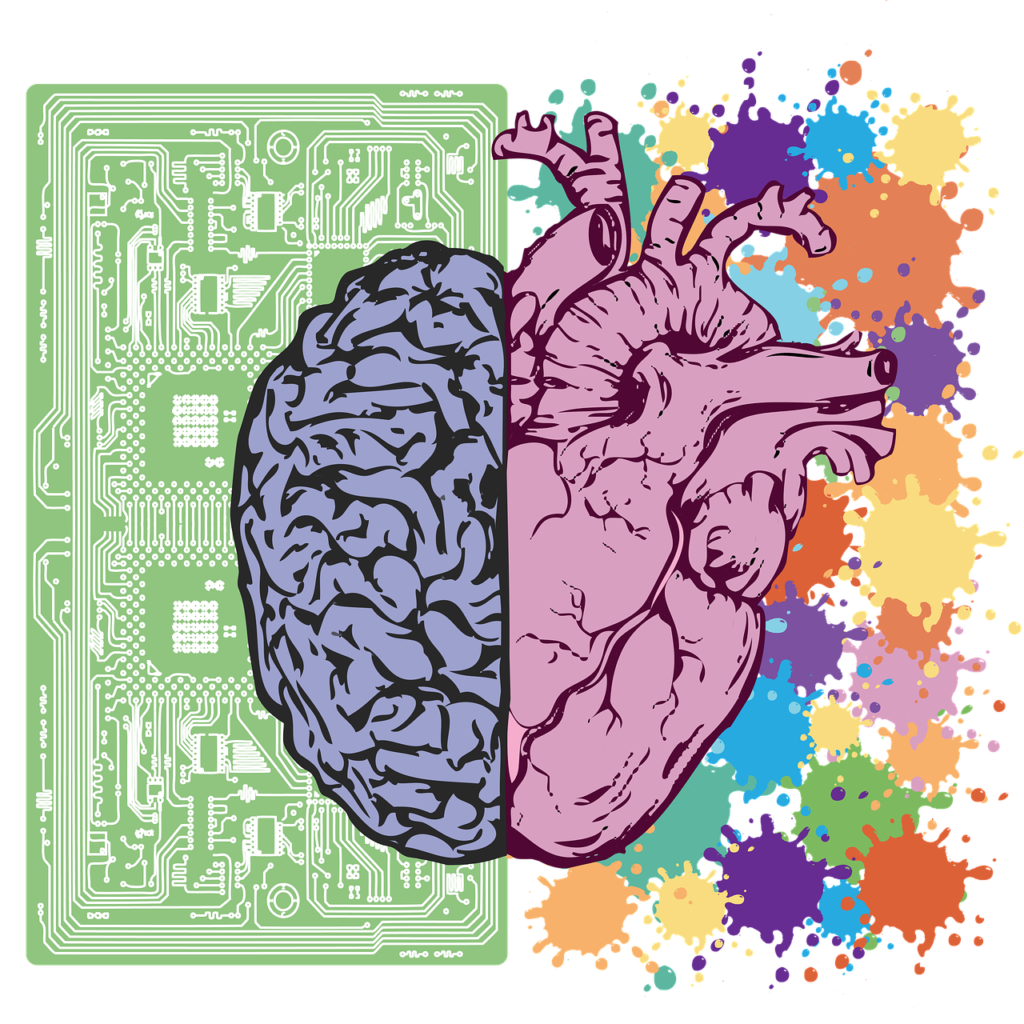
The link between our gut and brain, often referred to as the gut-brain axis, has become a focal point of scientific research in recent years. This connection emphasizes the profound impact that digestive health can have on mental well-being. Understanding the intricacies of this relationship can provide valuable insights into how maintaining a healthy gut microbiome can lead to better mental health. This article delves into the science behind the gut-brain connection, explores its implications for mental health, and offers practical tips for nurturing a healthy gut.
Understanding the Gut-Brain Connection
The Science Behind the Gut-Brain Axis
The gut-brain axis is a bidirectional communication network that links the enteric nervous system (ENS) in the gut with the central nervous system (CNS) in the brain. This complex system involves multiple pathways, including:
- Neural Pathways: The vagus nerve is a key player in this communication, transmitting signals between the gut and the brain.
- Hormonal Pathways: Gut hormones like ghrelin and leptin influence brain function and behavior.
- Immune System: The gut-associated lymphoid tissue (GALT) interacts with the brain through cytokines and other immune mediators.
- Microbiota: The trillions of microorganisms in the gut (collectively known as the gut microbiome) produce metabolites that can affect brain function.
Role of the Gut Microbiome
The gut microbiome consists of bacteria, viruses, fungi, and other microorganisms that live in the digestive tract. These microbes play a crucial role in:
- Digesting Food: They help break down complex carbohydrates, fibers, and proteins.
- Producing Vitamins: Gut bacteria synthesize essential vitamins like B12 and K.
- Regulating the Immune System: The microbiome helps maintain immune balance and protect against pathogens.
- Producing Neurotransmitters: Some gut bacteria produce neurotransmitters like serotonin, dopamine, and gamma-aminobutyric acid (GABA), which influence mood and behavior.
The Impact of Gut Health on Mental Well-Being
Depression and Anxiety
Several studies have shown a strong link between gut health and mental health disorders such as depression and anxiety. For instance:
- Microbiome Imbalances: Dysbiosis, an imbalance in the gut microbiome, has been associated with increased risk of depression and anxiety.
- Inflammation: Chronic gut inflammation can lead to systemic inflammation, which is linked to depressive symptoms.
- Neurotransmitter Production: The gut produces about 90% of the body’s serotonin, a key neurotransmitter that regulates mood. An unhealthy gut can disrupt serotonin production, contributing to mood disorders.
Cognitive Function
Gut health also influences cognitive function. Research indicates that:
- Memory and Learning: A healthy gut microbiome supports cognitive processes like memory and learning by modulating brain plasticity and neurotransmitter levels.
- Neurodegenerative Diseases: Gut health is implicated in neurodegenerative diseases like Alzheimer’s and Parkinson’s. Inflammation and microbiome changes in the gut may exacerbate these conditions.
Stress Response
The gut-brain axis plays a crucial role in the body’s response to stress. An unhealthy gut can:
- Exacerbate Stress: Dysbiosis can impair the hypothalamic-pituitary-adrenal (HPA) axis, leading to an exaggerated stress response.
- Affect Behavior: Gut bacteria can influence stress-related behaviors, potentially increasing anxiety and depressive symptoms.
Tips for Maintaining a Healthy Gut Microbiome
Diet and Nutrition
A balanced diet is fundamental to gut health. Here are some dietary tips:
- Probiotics: Consuming probiotic-rich foods like yogurt, kefir, sauerkraut, kimchi, and miso can introduce beneficial bacteria into the gut.
- Prebiotics: Prebiotic foods such as garlic, onions, leeks, asparagus, bananas, and whole grains feed the beneficial bacteria in the gut.
- Fiber: A high-fiber diet supports gut health by promoting the growth of beneficial bacteria. Aim to include a variety of fiber-rich foods like fruits, vegetables, legumes, and whole grains.
- Diverse Diet: Eating a diverse range of foods ensures a diverse microbiome, which is associated with better health outcomes.
- Limit Processed Foods: Processed foods high in sugar, fat, and artificial additives can disrupt the gut microbiome. Try to limit these and opt for whole, minimally processed foods.
Lifestyle Habits
In addition to diet, certain lifestyle habits can support gut health:
- Regular Exercise: Physical activity promotes a healthy microbiome by increasing the diversity of gut bacteria. Aim for at least 30 minutes of moderate exercise most days of the week.
- Adequate Sleep: Poor sleep can negatively affect the gut microbiome. Strive for 7-9 hours of quality sleep per night to support gut health.
- Stress Management: Chronic stress can harm the gut microbiome. Incorporate stress-reducing practices such as meditation, yoga, deep breathing exercises, and mindfulness into your daily routine.
- Hydration: Drinking plenty of water aids digestion and helps maintain a healthy gut lining.
Avoiding Harmful Substances
Certain substances can negatively impact gut health:
- Antibiotics: While necessary at times, antibiotics can disrupt the gut microbiome. If you need to take antibiotics, discuss probiotic supplementation with your healthcare provider.
- Nonsteroidal Anti-Inflammatory Drugs (NSAIDs): Long-term use of NSAIDs can harm the gut lining. Use these medications sparingly and under medical advice.
- Smoking and Alcohol: Both smoking and excessive alcohol consumption can damage the gut lining and disrupt the microbiome. Reducing or eliminating these habits can improve gut health.
Probiotic and Prebiotic Supplements
While it’s best to get probiotics and prebiotics from food, supplements can be beneficial, especially for those with specific health issues:
- Probiotic Supplements: These can help replenish beneficial bacteria, particularly after antibiotic use. Look for high-quality, multi-strain probiotics.
- Prebiotic Supplements: Prebiotics feed beneficial bacteria. Supplements can be helpful if your diet lacks prebiotic-rich foods.
Medical Interventions
For some individuals, medical interventions might be necessary to restore gut health:
- Fecal Microbiota Transplant (FMT): This procedure involves transplanting fecal bacteria from a healthy donor to restore a balanced microbiome in patients with severe dysbiosis or recurrent Clostridium difficile infections.
- Medications: Certain medications can help manage symptoms of gut-related conditions like irritable bowel syndrome (IBS) and inflammatory bowel disease (IBD).
The Future of Gut-Brain Research
Research into the gut-brain connection is still in its early stages, but the potential implications are vast. Future studies may uncover more precise ways to manipulate the gut microbiome to treat mental health disorders and improve overall well-being. Personalized nutrition and microbiome-based therapies could become standard practice in managing mental health conditions.
Key Research Areas
- Microbiome Profiling: Advances in sequencing technologies will allow for more detailed profiling of individual microbiomes, leading to personalized treatment plans.
- Psychobiotics: These are probiotics specifically designed to impact mental health. Research into psychobiotics is promising, with potential applications in treating depression, anxiety, and stress-related disorders.
- Gut-Brain Therapies: Combining dietary, lifestyle, and microbiome-based interventions could offer comprehensive approaches to managing mental health through gut health.
Conclusion
The gut-brain connection underscores the importance of maintaining a healthy gut microbiome for mental well-being. By understanding the science behind this link and implementing practical strategies, individuals can support both their digestive and mental health. As research progresses, new insights and therapies will continue to emerge, offering hope for improved mental health outcomes through targeted gut health interventions. Prioritizing gut health through diet, lifestyle, and medical guidance is a powerful step toward achieving overall well-being and a healthier, happier life.


